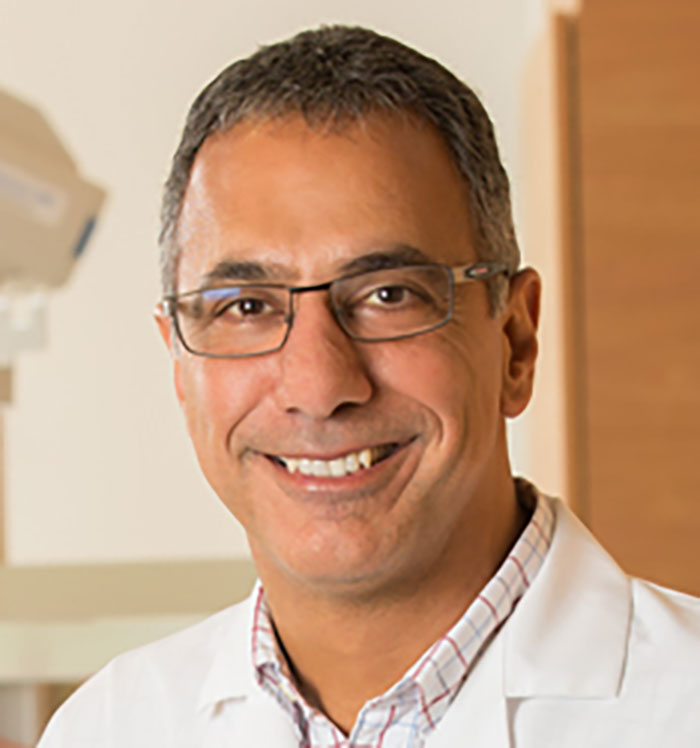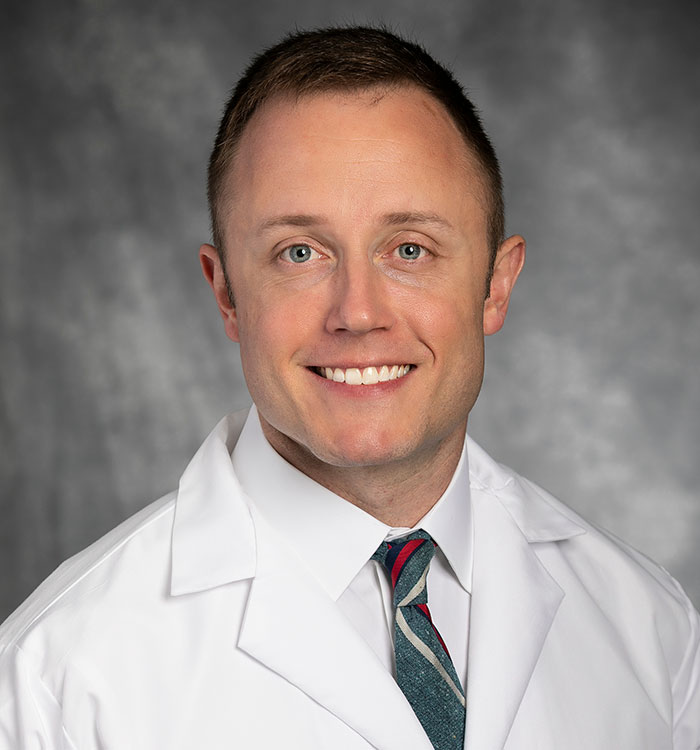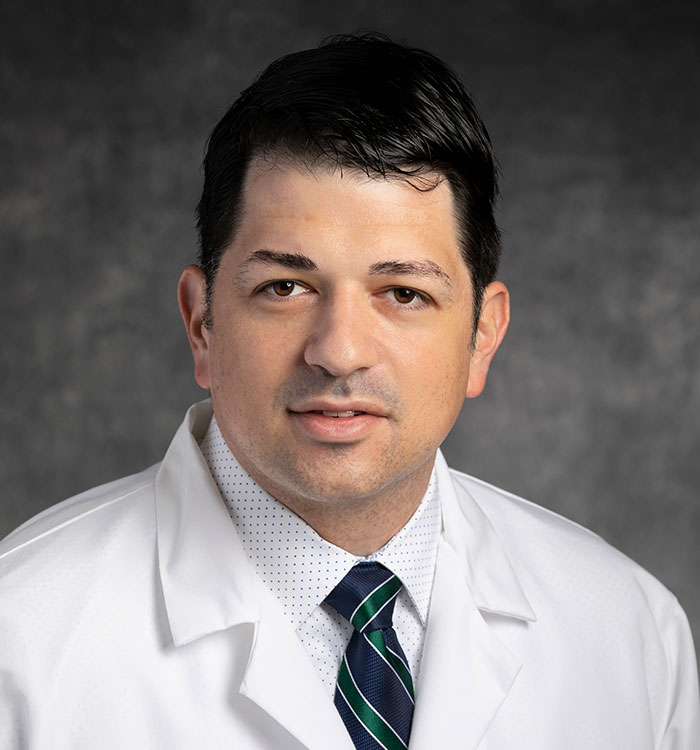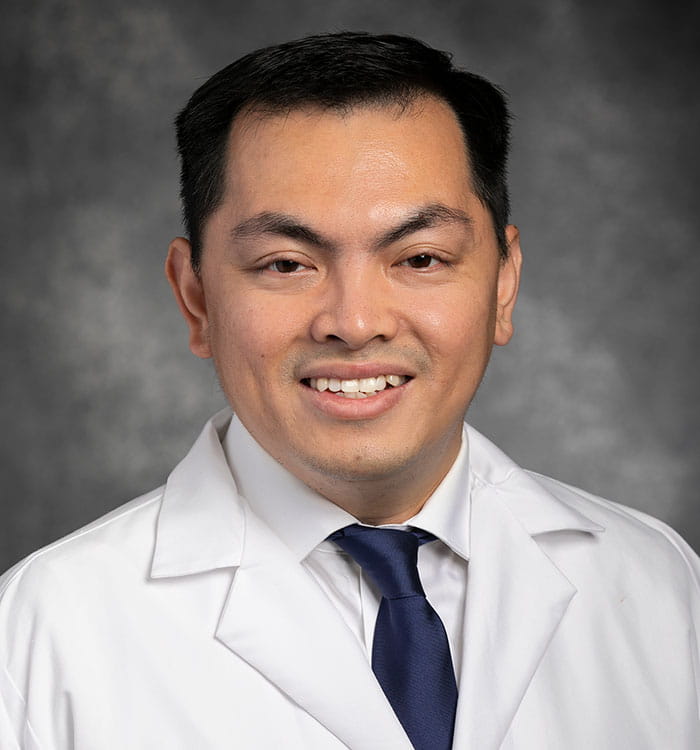University Hospitals Digestive Health Institute: Meeting Today’s Challenges
December 13, 2021
Innovations in Digestive Health | Fall 2021
The COVID pandemic has strained resources at medical institutions around the country, including the University Hospitals Digestive Health Institute, due to both Covid admissions and a surge in patients who need care and don’t have COVID, says John Dumot, DO, FASGE, Director University Hospitals Digestive Health Institute.
 John Dumot, DO, FASGE
John Dumot, DO, FASGE“Both of these populations strained the system,” says Dr. Dumot. “We’ve had fewer nurses, technicians and other healthcare providers. In order to continue to provide the best possible care to our patients, we’ve consolidated some of our inpatient space and repurposed others. For example, many of our patients who normally would have been admitted to a floor bed received care in the anesthesia recovery unit. We thank patients for their tolerance and graciousness to our nurses, who continue providing exceptional care, regardless of their environment.”
Colon cancer screening still top priority
While colonoscopy is still the gold standard in screening for, and preventing, colon cancer, Dr. Dumot says the use of home based screening tests - Cologuard and FIT - increases year after year.
“This trend has resulted in UH performing more diagnostic colonoscopies, which have yielded results of significant lesions,” he says. “This is making us rethink the value of home-based testing. When we’re constrained on resources, and still have a significant percent of the population not getting screened at all, it’s much more important to get a test done, rather than a particular test done.”
Digestive Health Institute growing to meet patient needs
While several members of the UH Digestive Health Institute are pursuing career opportunities elsewhere, the DHI continues to add expertise, including two new surgical oncologists and a gastroenterologist:
 Richard, Hoehn, MD
Richard, Hoehn, MDRichard Hoehn, MD | A board-certified surgical oncologist in the Division of Surgical Oncology, UH Seidman Cancer Center, joined the DHI this fall. Dr. Hoehn brings particular expertise in Hyperthermic Intraperitoneal Chemotherapy (HIPEC), which is used to destroy remaining cancer cells in the abdomen following surgery for metastatic cancer. This procedure appears to improve patient outcomes.
 Lee Ocuin, MD
Lee Ocuin, MDLee Ocuin, MD | Clinical Assistant Professor, Case Western Reserve University School of Medicine, brings specialized training for performing hepatic artery infusion (HAI). HAI directly delivers high doses of chemotherapy to kill cancer cells that have metastasized from colon cancer to the liver. These patients typically have a poor prognosis. HAI is only offered in top-tier medical institutions.
 Vu Q. Nguyen, MD
Vu Q. Nguyen, MDVu Q. Nguyen, MD | Assistant Professor, Case Western Reserve University School of Medicine, conducts both investigator- and industry-sponsored research to explore novel diagnostic and therapeutic options for Inflammatory Bowel Disease (IBD), including those in clinical trials. He also collaborates on translational and basic science research for IBD.
Additional welcomes to the UH Digestive Health Institute:
Gastroenterology
Umar Hayat, MD
Christianna Kreiss, MD
Emad Mansoor, MD
Christopher Pluskota, DO
Anamay Sharma, MD
Hepatology
Naemat Sandhu, MD
Thoracic and Esophageal Surgery
Jillian Sinopoli, DO
Multidisciplinary care
“The DHI offers multidisciplinary care to patients in northeast Ohio that includes physicians, surgeons and other advanced practitioners throughout UH’s integrated hospital system,” says Dr. Dumot. “We’re dedicated to this geography and to providing high-value care to our patients. Feel free to refer any patients with digestive and liver disorders and diseases.”


